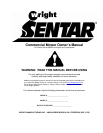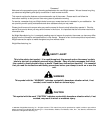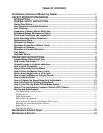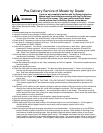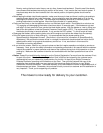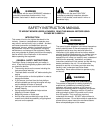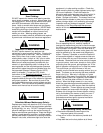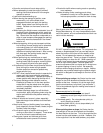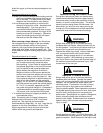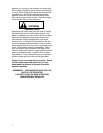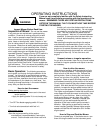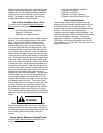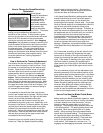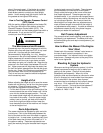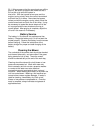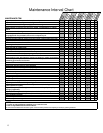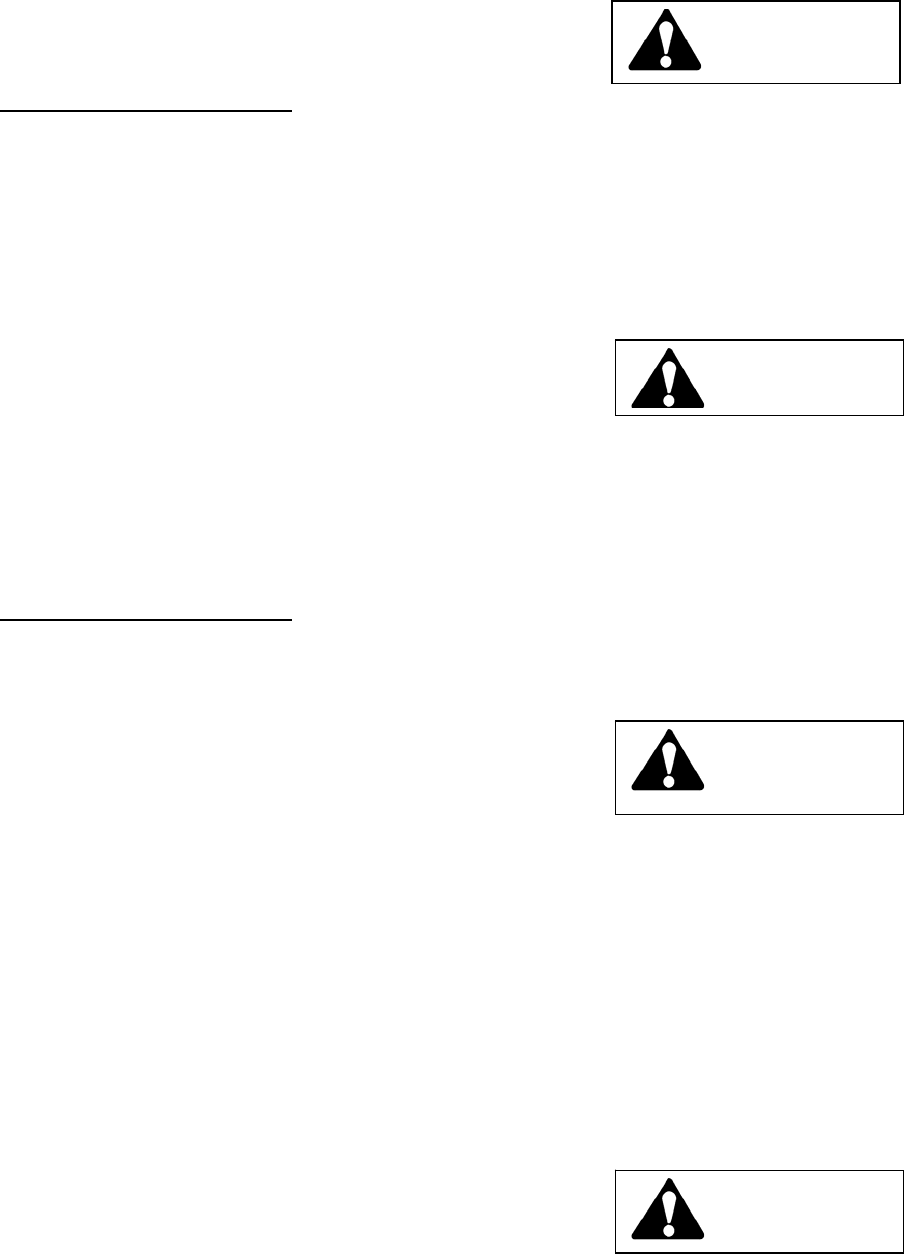
6
Avoid this angle, as it has the least advantage for the
Sentar.
Recommendations for this angle:
• Stretch your arms out straight while holding onto the
stationary handlebar and sit back as far as you
can on the seat. This adds more of your body
weight to the drive wheels for more traction.
• Do not change speed suddenly to minimize the
tendency of going into a slide. Accelerate and
decelerate gently. If you ever go into an
uncontrolled slide while pointing down a slope
the recommended procedure is to let go of the
handles and jump off if necessary. Otherwise,
control the mower gently and stay off slopes
that tend to make the wheels slide.
When crossing a slope sideways, the Sentar has
the average amount of weight on the drive wheels
versus the front wheels, similar to level ground.
However, this angle leaves the least weight on the
higher side drive wheel, tending to make it slip. This
is the preferred angle for mowing large areas of gentle
slopes.
Recommendations for this angle:
• Sit back, as far as you can on the seat. This adds
weight to the rear drive wheels and will allow
you to mow more quickly across the slope
without sliding. If your Sentar is equipped with
the optional weight bar on the front, the mower
may not handle as well crossing slopes as a
Sentar without the weight bar on the front.
Weight on the front of the mower reduces the
traction of the rear drive wheels and can cause
the mower to slide or nose dive down hill. Use
of the optional weight bar is determined by the
width of cut of the mower and the operator’s
weight. For 48” and 52” cut mowers, operators
over 220 pounds may prefer the optional weight
kit. For 61” cut mowers, operators over 280
may prefer the optional weight kit. Remember it
is recommended that operators weigh at least
120 pounds and not more than 350 pounds.
• To reduce the chances of “popping-a-wheelie”, do
not accelerate quickly.
Note: Excessively worn tire tread is dangerous.
Replace tire(s) with less than 3/32” of any tread
groove left. Use tires with the tread pattern
recommended by Wright Mfg., Inc. only. Keep the tire
pressure in the drive tires between 18 and 24 psi.
Higher pressures will cause the tires to have less
traction which may prevent safe operation.
WARNING
Operation During Zero-Radius Turns:
During zero-radius turns (when one mower wheel
rotates backwards while the other rotates forward)
drive extra slowly to reduce the possibility of losing
traction, or control, or becoming dizzy. This will help
prevent you from being thrown off the mower. Be
aware that if you do a turn on a slope you may go
through all of the orientations to a slope mentioned
above and must handle the mower accordingly.
Operation in Reverse:
WARNING
Always keep a firm grip on the mower stationary
handlebar with both hands. Keep both feet firmly on
the foot platform. Look behind you before backing to
prevent injuring yourself or anyone behind you.
Operate the mower very slowly, inching it backward
until you become familiar with how the mower
operates. Always operate slowly if in an awkward
location or position. While backing up never place
your foot or feet on the ground near the back edge of
the mower to prevent serious personal injury if the
mower were to run over you.
Operation in Forward Direction:
WARNING
Always keep a firm grip on the mower stationary
handlebar with both hands. Operate the mower
slowly until you become familiar with how the mower
operates. Do not operate the mower faster than
conditions allow. For example, hills, wet or bumpy
ground, dim light or high grass are all conditions
requiring slower speeds. Never operate the mower at
the highest speed unless you are on level, wide, open
areas of clearly visible ground or transporting on
paved areas. Speeding with any mower is dangerous,
and so is traveling faster than conditions should
permit on this mower. Sudden stops from excessive
speed or falling off the mower may cause serious
injury or death.
Fuel Safety:
WARNING
Handle gasoline with care – it is highly flammable. Do
not smoke while handling gasoline. Use an approved
gasoline container. Never remove the fuel cap or add



